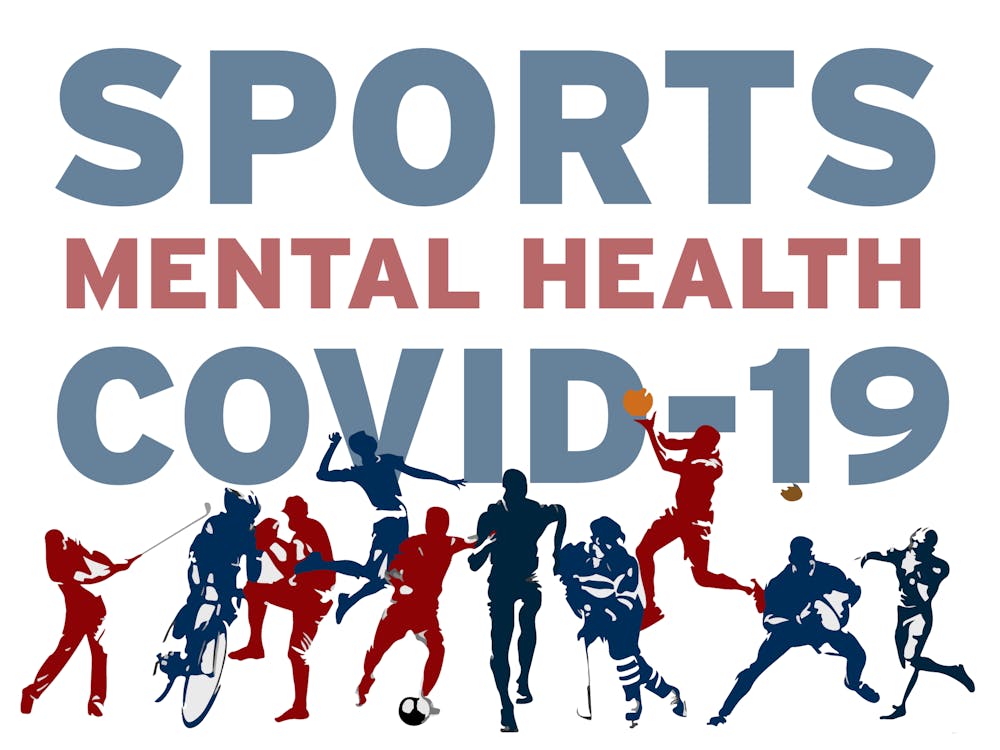For student-athletes, managing the physical toll of college athletics in a normal season is a given, as is maintaining the composure of one’s mental health. But when the added pressures include competing during a pandemic, risking contraction of COVID-19, attending online classes and the general unknown of the situation at hand, that’s when the complexities of an athletic year as unprecedented as this one takes center stage.
Student-athletes’ mental health concerns are complex and well-documented, so when the NCAA conducted a fall 2020 survey of 25,000 student-athlete participants, the results weren’t as surprising as they were troubling. Respondents reported that academic worries (43 percent), lack of access to their sport (33 percent), COVID-19 concerns (31 percent) and financial worries (24 percent) are leading factors negatively impacting their mental health. These kinds of results have warranted the need for specialized awareness in college athletic departments across the country, including at American University.
In comes Natalie Rogers, AU’s new associate athletic director for student-athlete well-being. Hired for this newly structured role in September, Rogers is responsible for the leadership of all areas of the student-athlete experience. That role includes working with resources such as AU’s Academic Support and Access Center, Housing & Residence Life, the Career Center and the athletic department’s counselors and strength and conditioning staff.
“We want the athletes to have as seamless and easy transition [to this year] as possible, but we're on COVID time,” Rogers said. “That [transition] is something as easy as picking up the phone and getting on a Zoom call with a counselor. We're certainly always trying to share out wherever we can, and certainly, any new innovations or anything that we're thinking of, we're always collaborating to make sure that it’s the best of our departments.”
AU has already faced its share of challenges this year. The men’s and women’s basketball teams withstood numerous game postponements and cancellations that resulted in a 27-day pause, and the department enforced a 10-day shutdown for all athletic programs after an increased COVID-19 positivity rate.
In an interview with the athletic department in an episode of “AU Hoop Talk”, men’s head basketball coach Mike Brennan spoke about his approach to coaching this season with so many variables.
“You know, I forget about basketball,” Brennan said. “Their mental health is the important thing that we're trying to focus on and it's hard because it's been multiple times [being postponed].”
“It's a hard thing where we've been going through it for obviously the whole time we've been playing, so it's the suddenness of it, the unknown. The games that have been canceled, we've been waiting up until the very last minute so that's the hardest part. Then it's a huge letdown and [the players] know as soon as I know,” Brennan said. “So it's like, how do you start preparing the guys and keeping them together and focused through it? So it's an emotional rollercoaster.”
Student-athletes have leaned on each other for support since the start of the pandemic, with help from the University’s Student-Athlete Advisory Committee. Working within NCAA, Patriot League and AU guidelines, the committee strives to build relationships within the campus community and advocate for an inclusive athletic environment. This past fall semester saw initiatives geared toward voter engagement and social justice, and this semester will be focused on mental health conversations as teams get their seasons underway.
Editor's Note: This article appeared in The Eagle's March 2021 virtual print edition.
Lauren Fredricks, a senior studying political science on the field hockey team, serves as the chapter’s president. Last year, she and other members organized partnerships with the Counseling Center and tabled around campus to provide students with resources on behalf of the athletic department. Now, the Student-Athlete Advisory Committee has shifted gears to build conversations around mental health awareness that can happen in a remote setting. She said they would lean into the “wellness” aspect of Wellness Week and promote initiatives sponsored by the Patriot League as well as their own planned activities.
No matter how many programs are prepared to try and alleviate stress, there’s no denying that the many worries of this year’s student-athletes range across the board. To try and accommodate those worries, the NCAA has granted another year of eligibility for student-athletes, an option which AU has fully supported.
“We don't want to lose the athletes or put any additional pressures on them because they opted out [of playing], absolutely not,” Rogers said. “We are giving that confirmation, if this is what you want to do, please, by all means, do it, we will work with you to make you feel more comfortable, you can still check in with your team. We don't want them to have any more undue stress.”
Fredricks has tried to stick to her routines in order to keep a steady mindset. With her season just getting underway, she has looked forward to getting on the field and playing her sport — a sense of normalcy.
“We've been kind of just trying to take it one day at a time and almost minimize the pressure as much as possible — but also just focus on the fact that we're getting to do what we love again,” Fredricks said.





